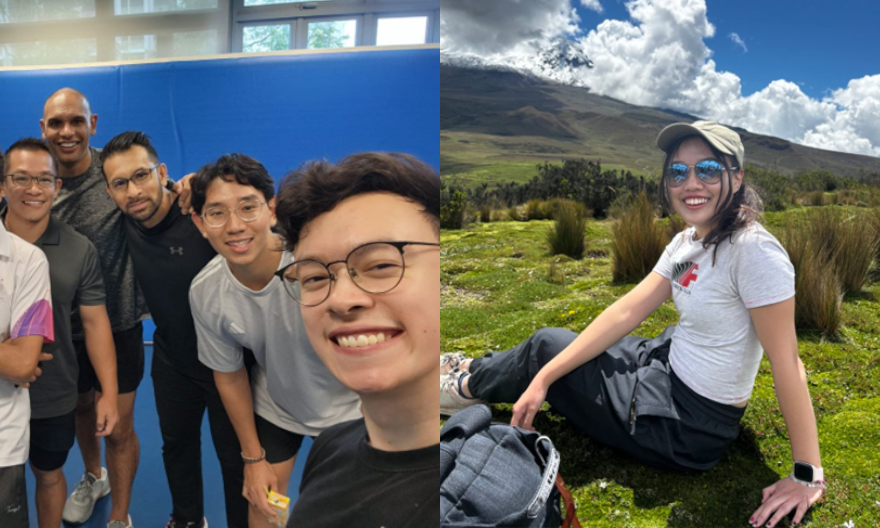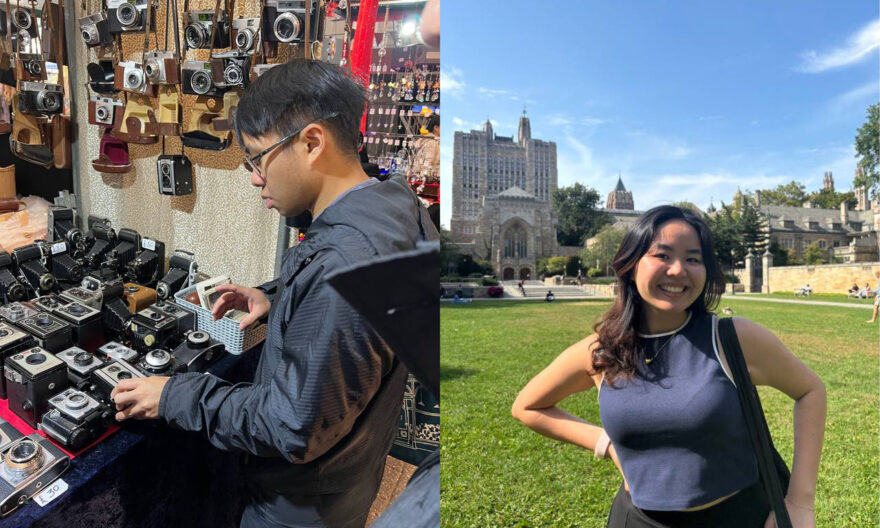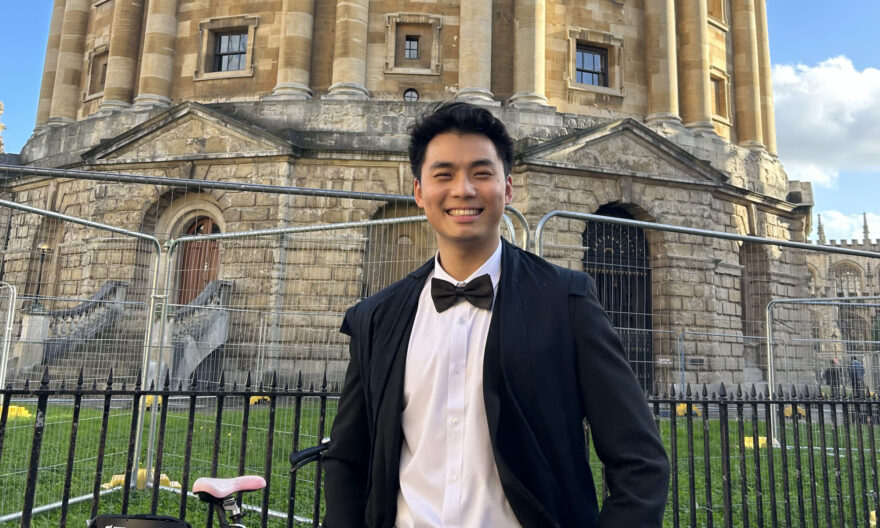Exploring football landscapes through an experiential trip to the United Kingdom and Singapore
Learning about the opportunities and challenges of the sport during a Learning Across Boundaries (LAB) experience
Most football fans in Singapore could easily name players from teams such as Manchester City, Liverpool, and Chelsea, yet not many might have attended a match in the local Singapore Premier League. This observation was what inspired a Yale-NUS College Learning Across Boundaries (LAB) trip that took place in the United Kingdom and Singapore, to help students understand the conditions of success surrounding the football ecosystem in the UK and apply it to the challenges Singapore faces.
Organised by the College’s Centre for International & Professional Experience (CIPE) office, the LAB led by Andy Loe, Associate Director, Campus Life at the Student Affairs Office, included both students and alumni participants.
“I grew up in an environment where football culture dominates most spaces of social life, which is strikingly different from football culture in Singapore. When I saw that this LAB was about exploring football from its roots in England, I was immediately curious,” Sol Gonzalez (Class of 2025) said.
The LAB kickstarted at Yale-NUS with a panel discussion with Dr Daryl Teo, Lecturer and Manager at Temasek Polytechnic, and Mr Lim Tong Hai, a former Singapore National Footballer. Equipped with knowledge of sports coaching, fan engagement, and football history in Singapore, the LAB participants made their way to the UK.
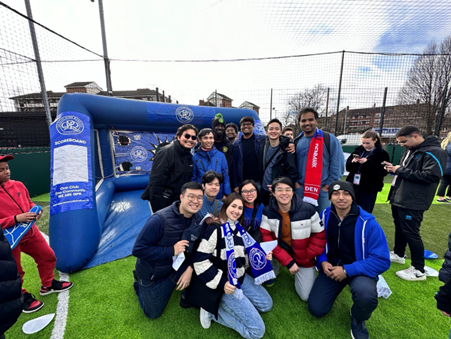 The team at the community football fields near Queens Park Rangers’ stadium. Image provided by Billy Tran.
The team at the community football fields near Queens Park Rangers’ stadium. Image provided by Billy Tran.
First on their itinerary was attending an English Football League Championship game in London between Queens Park Rangers and Rotherham United.
“What surprised me the most happened beyond the game itself. We found out the club rents community football fields near the stadium so people can come and play together. I was amazed by how community-building is so readily available for fans of the club and neighbours of the area,” Sol shared. She also noted how the experience broadened her horizon to better understand football as more than just a sport.
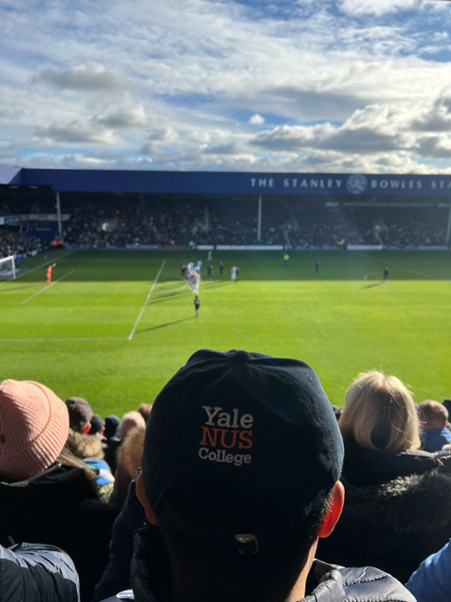 Watching the Queens Park Rangers football game. Image provided by Billy Tran.
Watching the Queens Park Rangers football game. Image provided by Billy Tran.
Complementing their experience in London was an excursion to the famous Wembley Stadium, where the Carabao Cup Final between Chelsea and Liverpool was held, and a local pub visit where they could watch the game. This opportunity allowed the group to observe and evaluate fan behaviours and social interactions on-site.
The team then departed for Manchester, making a stop at a community sports centre to experience playing football and conduct interviews with stakeholders. Reflecting on the eye-opening experience, Tinesh Indrarajah (Class of 2017) noted, “I was impressed to see how ingrained football is within English communities, community centre programming makes football accessible and approachable for families of all backgrounds, and parents in turn encourage their children to socialise through playing football.”
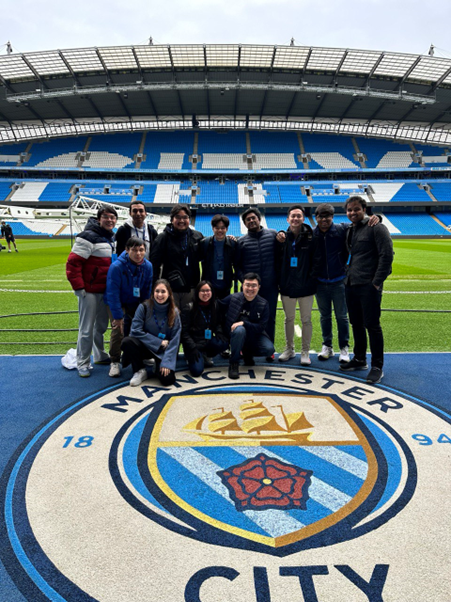 Visiting Manchester City Football Stadium. Image provided by Billy Tran.
Visiting Manchester City Football Stadium. Image provided by Billy Tran.
Joined by Dr Ong Chin Wei, former Consultant at Manchester City Football Club, the group visited Manchester City Football Stadium and were led on a tour to understand the club’s cultural significance both locally and globally. During the visit, they also met with Ms Dayna Simpson, Research and Insight Manager, to explore the dynamic landscape of the football fan experience and innovative practices in reshaping fan engagement. Rounding off their time in the UK was a facilitated tour of the National Football Museum and a session with Mr Sion Rowlands, a Leicester City FC coach, to better understand football academies in the region.
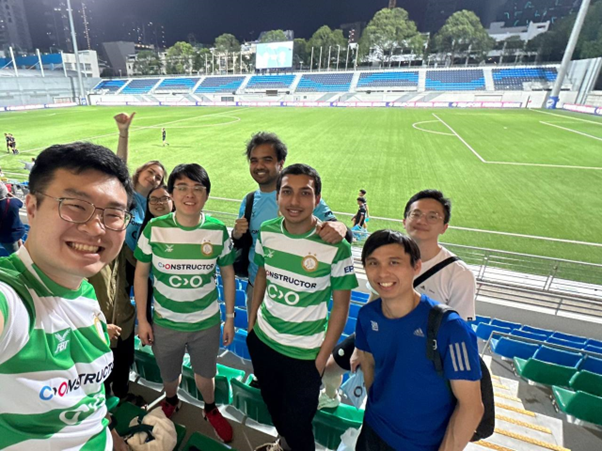 The team attending a football match between Geylang International and Young Lions at Jalan Besar Stadium. Image provided by Andy Loe.
The team attending a football match between Geylang International and Young Lions at Jalan Besar Stadium. Image provided by Andy Loe.
After their educational time abroad, the team returned to Singapore and attended a friendly match between local teams Geylang International and Young Lions. With a better understanding of the sport in both contexts, the students proceeded to collectively produce a white paper providing policy inputs and suggestions for Singapore football based on their LAB experience.
The LAB was greatly enriched by the presence of alumni, such as Tinesh, who acted as both a participant and facilitator. “While the learning and engagement with content felt similar to my past LAB experiences, I appreciated the chance to get to know the younger cohort of Yale-NUS students and learn from them throughout the week. Overall, it was a classic Yale-NUS experiential learning opportunity and I am very happy to have been a part of it,” Tinesh added.

